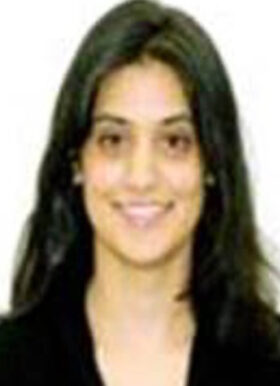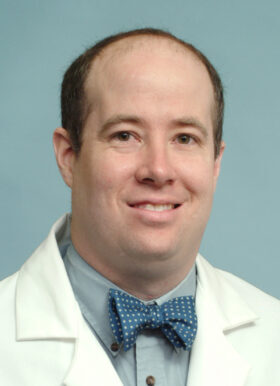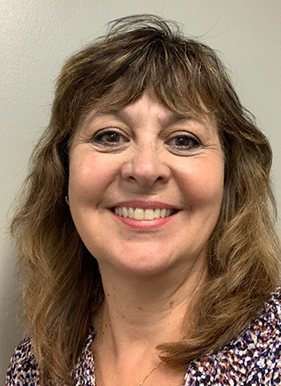The Washington University Fellowship in Anesthesiology for Abdominal Organ Transplantation offers a non-ACGME accredited position at one of the top transplant centers in the U.S. The one-year Fellowship offers comprehensive training in the perioperative care of adult patients undergoing an abdominal organ transplant, with added experience in complex hepatobiliary, vascular and cardiothoracic surgery.
Washington University School of Medicine and its affiliated hospital, Barnes-Jewish Hospital, are high-volume transplant centers and internationally recognized leaders in organ transplantation. Both institutions provide an exceptional environment for training in basic and clinical sciences and have a strong strategic commitment toward advancing the organ transplant program.
| Year | Deceased-donor | Living-donor | Livers | Kidneys | Kidney/Pancreas |
| 2023 | 459 | 59 | 121 | 288 | 11 |
| 2022 | 485 | 71 | 135 | 315 | 3 |
| 2021 | 490 | 62 | 151 | 274 | 12 |
| Year | Deceased-donor | Living-donor | Livers | Kidneys |
| 2023 | 44 | 2 | 11 | 9 |
| 2022 | 52 | 4 | 23 | 9 |
| 2021 | 41 | 5 | 17 | 12 |

Christopher King, MD, PhD
Abdominal Organ Transplant Fellow (2019)
Medical School: The Pritzker School of Medicine
Residency: Barnes-Jewish Hospital
Fellowship: Abdominal Organ Transplant – Washington University (2018-19)

Rashmi Rathor, MD
Fellow: Transplant (2012) & ACTA (2013)
Residency: Washington University
Fellowship: Abdominal Organ Transplant – Washington University (2011-12)
Fellowship: Cardiothoracic – Washington University (2012-13)
Please send a completed fellowship application and additional materials to Lisa Parks.
Lisa Parks
Program Coordinator
Washington University School of Medicine
MSC 8054-23-03
660 S. Euclid Ave.
St. Louis, MO 63110
Fellowship Director

George Richard Benzinger III, MD, PhD
Interim Vice Chair for Education
- Email: benzingerg@nospam.wustl.edu
Admin; Shirley Vaughn
Fellowship Coordinator
Clinical & Academic Leadership in Transplant Anesthesiology
The main goal of the Fellowship is to help fellows become clinical experts in the perioperative care of abdominal organ recipients and academic leaders in transplant anesthesiology. Our multi-faceted approach to education transforms trainees into expert consultants.
Trainees are exposed to every aspect of care of the liver transplant recipient – from evaluating candidate’s acceptability for transplant to postoperative management in the ICU. The focus of the Fellowship is the intraoperative anesthetic management of transplant recipients. Comprehensive clinical training with structured teaching in thromboelastometry, novel hemodynamic monitoring modalities, and transesophageal echocardiography enriches the clinical experience. Trainees become familiar with the implications of the various surgical techniques employed, including veno-venous bypass and the piggyback technique.
Under supervision, fellows serve as consultants to evaluate potential liver transplant recipients. Fellows attend weekly Multidisciplinary Listing Meetings to discuss the suitability of candidates as well as participate in weekly multidisciplinary Morbidity and Mortality Liver Transplant Conferences to optimize patient care.
The fellowship experience is rounded by rotations in a state-of-the-art surgical intensive care unit, blood bank, and transplant surgery service. Additional rotations can be organized based on the trainee’s interests.
The transplant group shares operating rooms and is fully clinically and educationally integrated with the cardiothoracic anesthesia group. This dynamic allows for Fellows to learn transesophageal echocardiography from experts in the field and become eligible for certification in Basic Perioperative Echocardiography.
Below is an example of an intraoperative TEE, demonstrating a positive bubble study in a patient with hepatopulmonary syndrome.
The didactic curriculum and clinical training are under the care of a multidisciplinary team of physicians, including anesthesiologists, intensivists, transplant surgeons, hematologists, and hepatologists. Conferences include the following:
- Abdominal Organ Transplant Lecture Series: a monthly, multi-disciplinary conference with lectures that reinforce fundamentals and provide insight into the current issues in transplantation.
- Transplant Anesthesia Journal Club: a conference dedicated to transplant anesthesia.
- Echocardiography Conference: a weekly conference (OR schedule permitting) lead by cardiothoracic anesthesiologists.
- Hepatobiliary, Transplant, Vascular and Cardiothoracic Anesthesia Conference: a weekly subspecialty conference.
Fellows have protected time for research throughout the year and are encouraged to take advantage of numerous research opportunities available either within the Department of Anesthesiology or in collaboration with other departments in the Medical Center.
Fellowship experience will be tailored to the individual candidate’s needs and goals. We encourage interested, board-eligible applicants to contact us and discuss their specific career goals.

